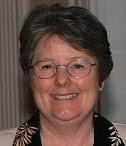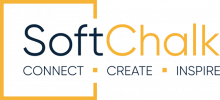We hope you enjoyed our last guest post on the early start program for online students. This week Diane Painter, Associate Professor of Education- Special Education at Shenandoah University, is sharing whether distance or face-to-face education works best for special education teacher training. All the guest posts in this series focus on Face-to-Face, Blended and Online Teaching and Learning, in support of the fall Innovator webinar series we are hosting, which starts on Friday, September 7. If you would like to hear more from any of our guest posters, be sure to register for the upcoming series. Here’s Diane.
According to the U.S. Bureau of Labor Statistics, employment of special education teachers is expected to grow by 17 percent from 2010 to 2020, in line with the average rate for all occupations. Growth is expected because of increasing enrollment, continued demand for special education services and retirement of currently licensed special education teachers. Source: https://www.bls.gov/ooh/Education-Training-and-Library/Special-education-teachers.htm#tab-6
In a document posted on the Virginia Department of Education website entitled, Commonwealth of Virginia Critical Shortage Teaching Endorsement Areas for 2012-2013 School Year, special education was listed as the top priority in a list of ten teaching areas. Source: https://www.doe.virginia.gov/teaching/workforce_data/shortage_areas/2012-2013.pdf
The need to train future special education teachers is also of great concern by special education advocacy groups such as the Council for Exceptional Children. Deb Ziegler, Associate Executive Director Policy and Advocacy Services for the Council for Exceptional Children, wrote to the U.S. Department of Education in May 2012 to convey CEC’s concern about the insufficient financial support for State Personnel Development Grant initiatives. The SPDG funds the training of special education personnel. Ziegler stated that a well-funded SPDG program is critical for states to address the national special education personnel shortage and is vital to recruitment and retention. Source: Ziegler letter can be found online at https://www.cec.sped.org/AM/Template.cfm?Section=Home&CONTENTID=18419&TEMPLATE=/CM/ContentDisplay.cfm
Teacher Certification Requirements
In the United States, those wishing to become special education teachers in public schools must have a 4-year bachelors degree and meet state certification requirements. Virginia provides multiple routes to licensure, including college and university programs approved by the Board of Education, reciprocity for educators licensed by other states and alternative routes for qualified candidates and career switchers. There are strict competency standards that must be met, so each college or university must submit a program matrix and course syllabi to the Virginia Department of Education before VDOE will approve a teacher preparation program.
Whatever route a teacher candidate takes toward teacher certification, it must include preparation in content knowledge, teaching skills, effective use of technology to enhance instruction and improve student learning, and they must show that they can effectively communicate and collaborate with colleagues, students, and their families.
Teacher Education Instruction- Distance vs. In the Classroom?
At Shenandoah University, we do offer both distance and live courses within our certificate and masters programs in special education. Some of our candidates live far from a campus center, as much as 90 minutes driving time. Other candidates are working long hours, working in a school or business and then have evening obligations such as coaching or tutoring. Therefore, taking distance courses is preferred by some of our teaching candidates.
We find that our most successful distance courses are primarily related to foundation in education or specific content areas. For example, in our foundation in special education course, students learn about the laws, policies, and regulations that govern the special education process. By creating web-based lessons that guide students through course readings, links to outside sources such as web sites or videos streamed from host servers, and engaging them in interactive activities that test their knowledge, candidates are actively involved in learning content material. But in a totally distance course, instructing and then assessing teaching skills that the teacher candidates must demonstrate can be a bit trickier. Observing how a teacher candidate teaches and then providing feedback can be accomplished via videotape analysis, but in my experience, both university supervisors and teaching candidates prefer it when we actually visit the teacher candidate’s classroom and give them instant feedback shortly after an observation. Setting up a live broadcast from a classroom to the university is also problematic since we have run into certain school districts that won’t allow any photographs or videotaping of students in special education. We have also found it easier to meet face-to-face with students to review lesson plans, test protocols and other documents that the students are trying to create. Review of such work can be done online with conferencing tools such as Blackboard’s Collaborate where you can engage in synchronous discussions and review documents from participant’s computers, but sometimes we run into technology issues such as a slow or insufficient Internet connection, especially with teacher candidates in rural areas who do not have high speed Internet or who have older, outdated computers.
I am not trying to say that a teacher preparation program cannot be effectively done in a totally distance delivered program, but in my experience, students and faculty tell me that a blended program of distance and face-to-face sessions seems to be more effective when it comes to skill development than totally distance programs.
Are there any other subjects that you feel are more effective with blended programs instead of totally distance programs? I’d love to hear from you in the comment section.
 Diane D. Painter, Ph.D. currently serves full time on the faculty of Shenandoah University, located in Winchester, Virginia, where she heads the Professional Studies Certificate Program in Special Education, chairs the Department of Curriculum and Instruction in the School of Education and Human Development and serves as the faculty advisor for the SU student chapter of the Council of Exceptional Children.
Diane D. Painter, Ph.D. currently serves full time on the faculty of Shenandoah University, located in Winchester, Virginia, where she heads the Professional Studies Certificate Program in Special Education, chairs the Department of Curriculum and Instruction in the School of Education and Human Development and serves as the faculty advisor for the SU student chapter of the Council of Exceptional Children.

2 Comments
Steve Holland
Hello Diane, I enjoyed reading your blog. I teach online Foundations and Special Ed coures. I have also taught in the classroom. I find the results are simiilar but we rely upon different tools and teaching techniques to achieve them. Your techniques as detailed sound great.
Diane D. Painter
Steve: Thank you for responding to the blog. Would you be willing to share with us some of those differences you mentioned?